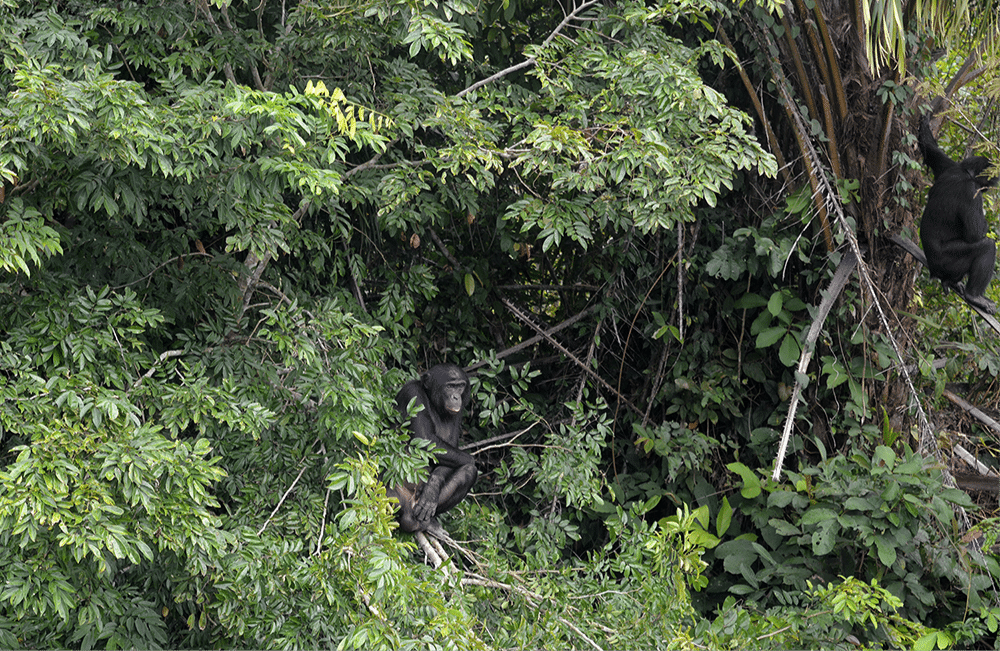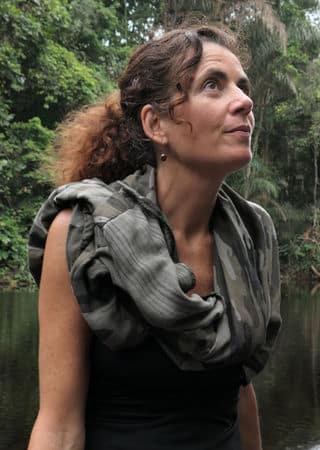By Jeannette De Wyze
Related: Oil Exploration in the Congo Rainforest- An Update May 2023
Bonobo lovers who were paying attention to the UN climate summit in Glasgow in November 2021 had reason to feel heartened when Félix Tshisekedi, president of the Democratic Republic of Congo, agreed to an ambitious 10-year plan to protect the Congo Basin.

Over the first five years, the agreement was to unlock half a billion dollars pledged by European countries and South Korea. In exchange DRC would cap Congolese forest-cover loss, regenerate degraded land, and otherwise protect the sub-Saharan behemoth’s plant and wildlife resources, including the critically endangered bonobos.
The global conservation community therefore collectively reeled in May 2022 when the DRC government abruptly announced plans to auction rights to develop oil and natural gas deposits in 16 enormous areas blocks throughout the country. In mid-July, the government increased the number of blocks to 30.

The World Bank ranks the DRC among the five poorest nations in the world. An estimated 60 million people – 73% of Congolese – were living on less than $2 a day in 2018. Defending the recent announcements about the oil and gas auction, a top adviser to the country’s minister of hydrocarbons told the New York Times that revenues from the drilling could drive development and reduce the country’s poverty. He added, “That’s our priority. Our priority is not to save the planet.”
According to one estimate, the Congolese oil and gas reserves could be worth more than $650 billion at current prices. But whether that windfall would enrich many of the nation’s 90 million inhabitants is far from certain. Hydrocarbon extraction in other oil-rich African nations such as Nigeria and Equatorial Guinea have caused environmental devastation while benefiting elites and multinational corporations.
Whether drilling in the DRC’s rainforests and peatlands would destroy the planet is also far from certain. But the list of likely negative environmental consequences is long and fearsome.
At Stake: Climate & Biodiversity
The Congo Basin absorbs more carbon than it emits and is one of the last regions in the world to do so. Its forest, second in size only to the Amazon, absorbs as much as 4% of global emissions every year, an estimated 1.5 billion tons of carbon dioxide. The central Congo Basin also contains the world’s largest complex of tropical peatland, covering 16.8
million hectares (41.5 million acres) and harboring 29 billion tons of carbon – equivalent to about three years of global fossil fuel emissions.
Peat is a type of wetland soil made of carbon-rich decomposed plant matter. While peat bogs store carbon when they’re waterlogged, they become highly flammable when they dry out.
Exploring and drilling for oil in the DRC would pose a slew of dangers to sensitive habitats, according to a recent briefing from the CongoPeat international scientific team. Hunting of wildlife including forest elephants and great apes would increase, as survey access roads are cut in previously inaccessible swamp forests. Even if no oil is found in certain areas, illegal logging would be virtually certain to increase. Once degraded, the forests would be more prone to fires.
If deposits are found, infrastructure development to serve workers in drilling areas also could easily damage natural water flow in the peatlands, disturbing their ecosystems and releasing their carbon. Oil spills and wastewater contamination from oil production may spread widely. “Every patch of peatland is connected to every other by water,” the CongoPeat report points out.
Impact on Ekolo ya Bonobo Community Reserve
DRC’s nature reserves and Protected Areas apparently are not completely spared from the proposed oil and gas extraction. The CongoPeat team estimated that 11.2 million hectares (27.7 million acres) of rainforest are included in the proposed drilling areas, including some Protected Areas. They also estimate that a million hectares (2.5 million acres) of carbon-rich peatland lie within three of the oil blocks.
‘We are very close to an oil-exploration area.’
Ekolo ya Bonobo Community Reserve, dominated by swamp forest, lies partly within DRC’s massive area of peat deposits, and, “We are very close to an oil-exploration area,” says Cintia Garai, Ekolo site director.

Map of Ekolo
“The [map] lines are vague, so we could be partly inside it.” However, she does not foresee an immediate threat because Ekolo is relatively inaccessible. “It would be very difficult to work north of the [Lulonga] river in Ekolo,” she states. “It would require a lot of work [for the potential oil drillers], so I think they would not start there.”
Complicating matters, boundaries of some of the DRC’s protected areas are not perfectly identified. Garai cites the example of logging concessions that overlap parts of Virunga National Park. The oldest national park in Africa, Virunga was established in 1925, long before the advent of GPS mapping technologies.
Garai adds that the bureaucratic wheels can turn slowly when establishing a Protected Area. Although she has submitted the information required to have Ekolo ya Bonobo included in a global database, ABC’s 117,000-acre bonobo refuge has not yet been added

Totaka Island, near Ekolo ya Bonobo in DR Congo
Oil Exploration Paused?
A glimmer of hope for averting ecological catastrophe in the Congo may have emerged from American Secretary of State Antony J. Blinken’s visit to Kinshasa on August 9. Blinken discussed the oil and gas lease auction with Tshisekedi, as well as with the DRC’s foreign minister and prime minister. The officials then jointly announced formation of a team to reconsider the oil and gas development plan. According to the New York Times, Blinken’s remarks were the first public stand by the U.S. government on the issue.
At least one environmental scientist reacted with hope. Simon Lewis, a leading member of the CongoPeat team, was quoted by the Times saying, “Logically, the DRC government should now officially halt the oil auction until the new…working group has concluded its discussion and implemented any near-team actions.”
The situation is fluid and unpredictable, but the mission of Friends of Bonobos of the Congo remains the same – save and protect bonobos for the long term in partnership with communities living near bonobo habitat. Conservation that provides direct benefits to people – helping them meet their basic needs for food, health care, and economic opportunity – can reduce incentives for damaging oil and gas extraction.
Jeannette De Wyze was a journalist at the San Diego Reader, where she wrote cover stories and news articles for 30 years. Today she’s a bonobo lover and supporter and the volunteer liaison between Women’s Empowerment International and the Nyaka Grannies Project in Uganda. She also raises puppies to be service dogs for Canine Companions for Independence and is an active blogger.


